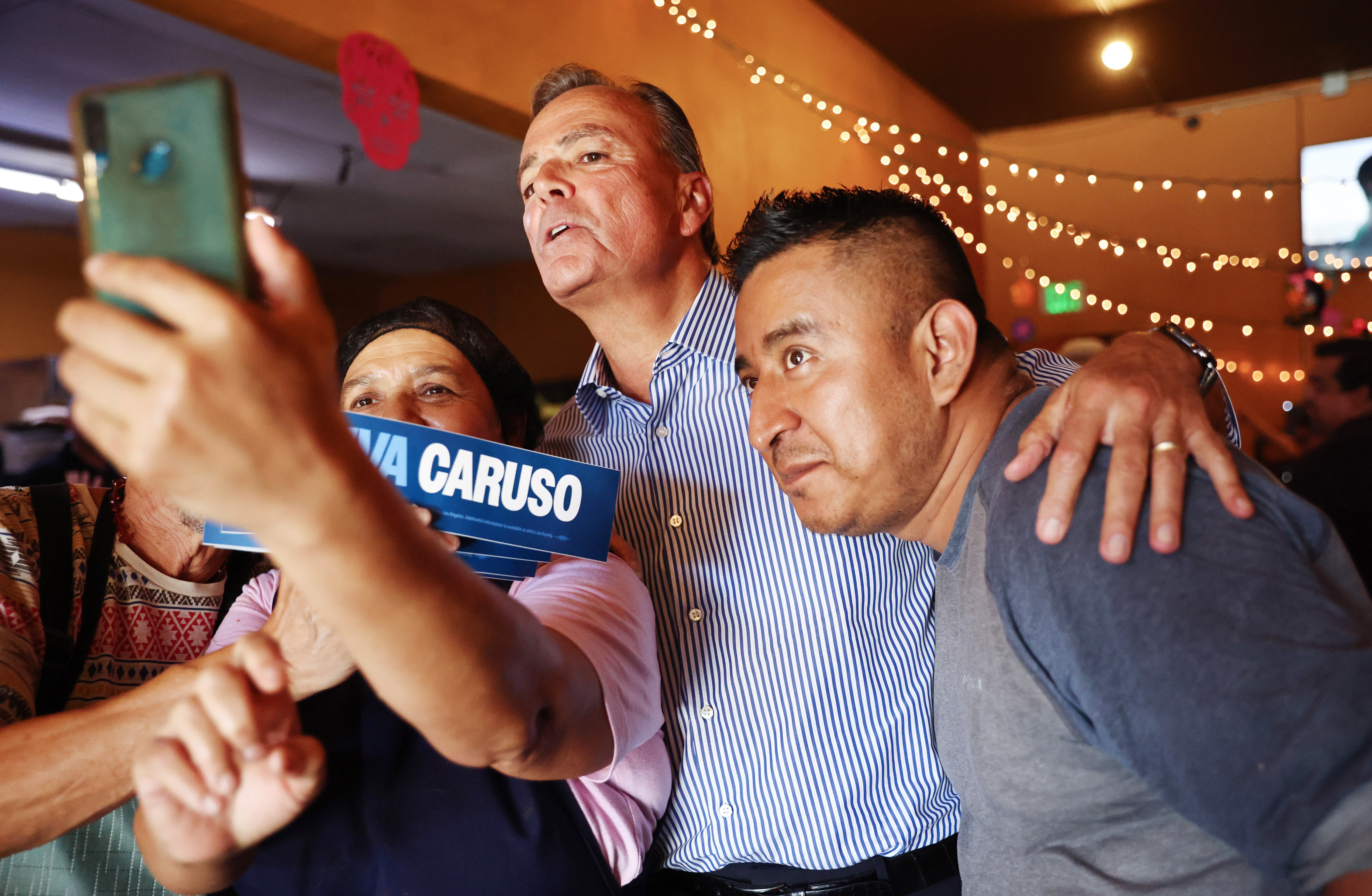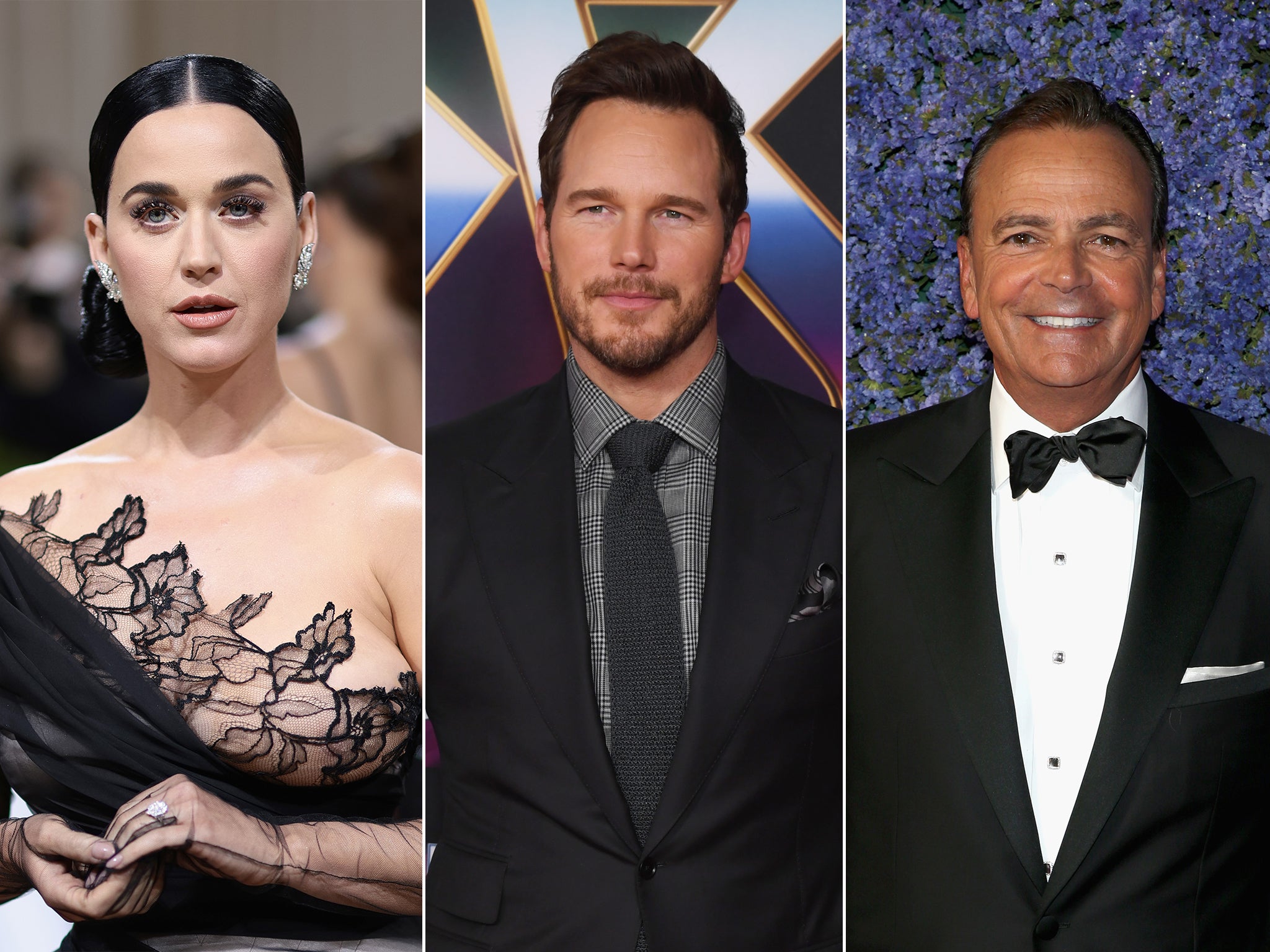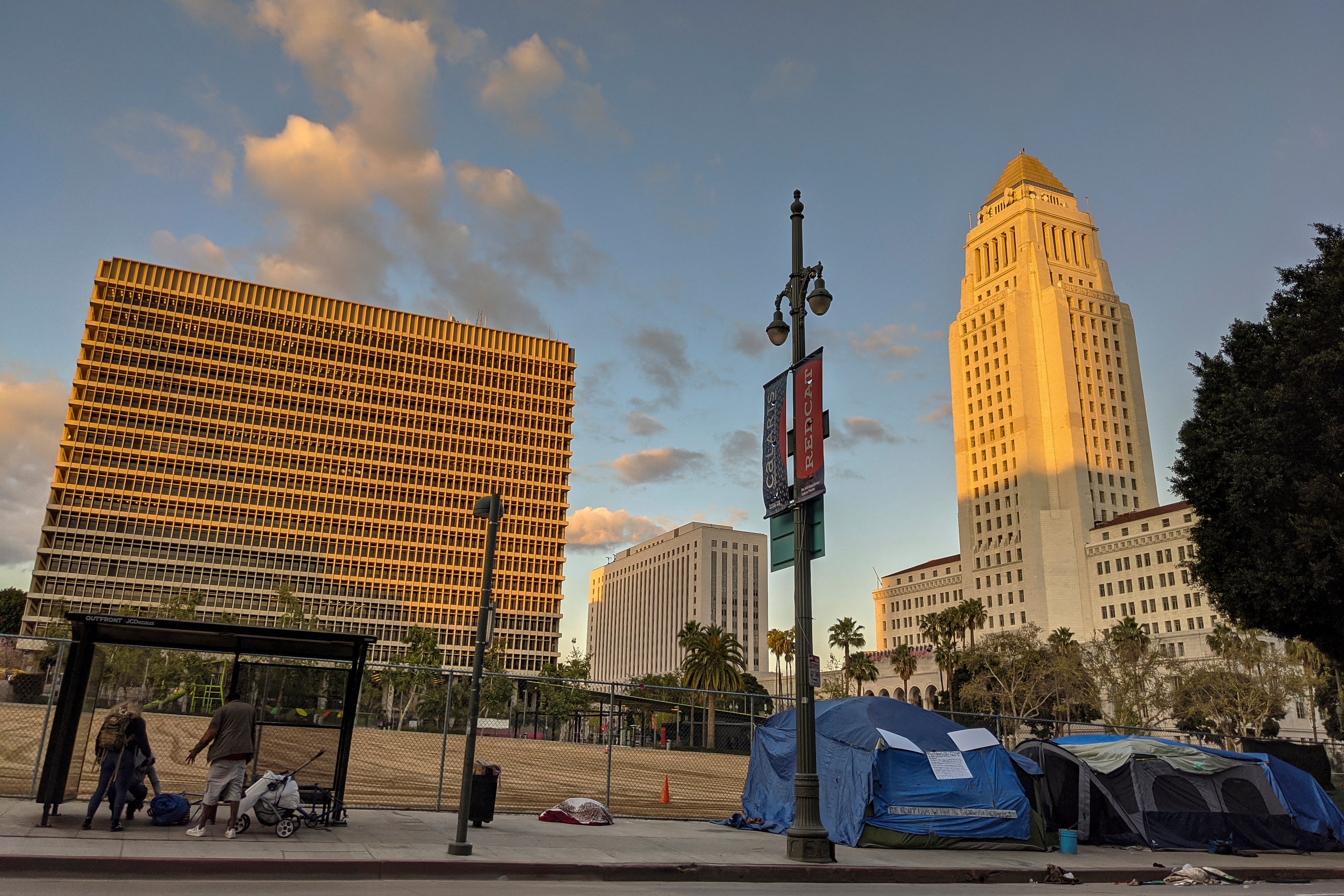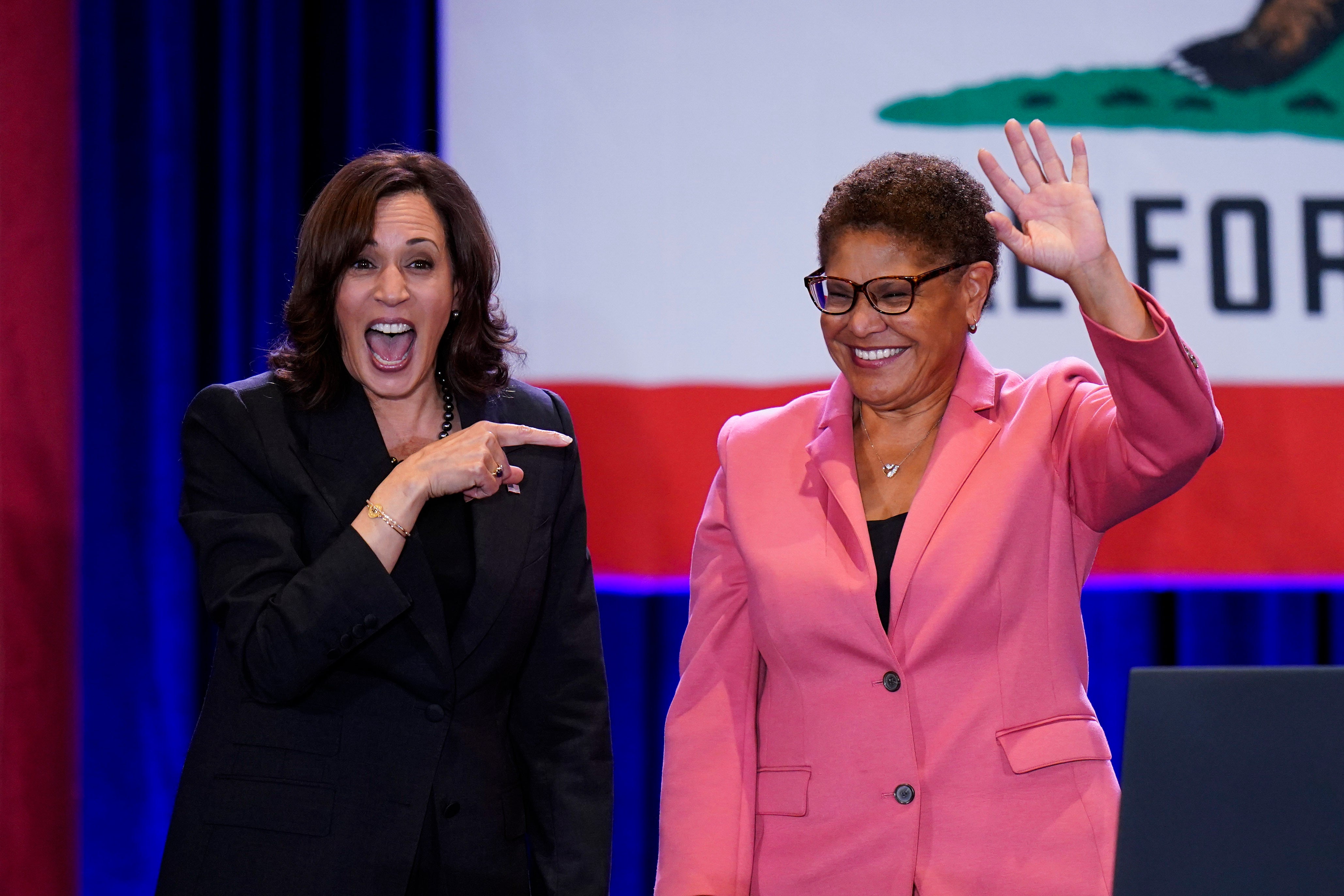Who is Rick Caruso, the controversial Kardashian-endorsed billionaire candidate running for LA mayor?
The billionaire real estate developer has won surprising support in liberal LA, but is he just a Republican in disguise? Josh Marcus reports


Your support helps us to tell the story
From reproductive rights to climate change to Big Tech, The Independent is on the ground when the story is developing. Whether it's investigating the financials of Elon Musk's pro-Trump PAC or producing our latest documentary, 'The A Word', which shines a light on the American women fighting for reproductive rights, we know how important it is to parse out the facts from the messaging.
At such a critical moment in US history, we need reporters on the ground. Your donation allows us to keep sending journalists to speak to both sides of the story.
The Independent is trusted by Americans across the entire political spectrum. And unlike many other quality news outlets, we choose not to lock Americans out of our reporting and analysis with paywalls. We believe quality journalism should be available to everyone, paid for by those who can afford it.
Your support makes all the difference.Perhaps this story sounds familiar.
A right-leaning, coastal real estate billionaire, who grew up in immense privilege, decides to jump into big-name elected politics.
He promises that his outsider status means he’ll do things differently and bring an end to the American carnage all around him. He plays on people’s fears and biases about public safety and spends gobs of his own money on a media-heavy campaign to unseat a far more conventionally qualified rival with years of experience in public service.
He’s dismissed as a long-shot at first, before coming within spitting distance of upsetting the Democratic establishment.
This is not the story of Donald Trump in 2016, but of Los Angeles mayoral candidate Rick Caruso in 2022, who is worth an estimated $4.3bn.
Though full results from California could take more than a week to come in, early reports show Mr Caruso leading his opponent, congresswoman Karen Bass, by just shy of 3 per cent, with 44 per cent of votes reported, according to The New York Times.
The race is notable not just for all the money and big names flying around, though there’s plenty of that too; Mr Caruso has spent at least $34m of his own money trying to pry Democratic voters away from Rep Bass, who is endorsed by the likes of Barack Obama and Joe Biden.
The contest also highlights how even in liberal precincts like Los Angeles, questions around public safety are becoming central concerns for voters, prompting surprising names like criminal justice reform crusader Kim Kardashian to line up behind Mr Caruso, who only recently switched his party affiliation to the Democrats and has given lavishly to Republicans and religious organizations that are anti-abortion.
The related issues of homelessness, affordable housing and public safety in Los Angeles have been the defining question for both candidates.
“Everybody in this city — at every corner of the city, no matter where you live, what your background is — is scared to walk out their doors. Everybody is worried about crime, is worried about their children going to school,” Mr Caruso said at a mayoral debate earlier this year.
California voters seem to be on the same page. A recent survey found affordability, homelessness, and crime/public safety were the top three issues for those in the Golden State.
Indeed, the city is struggling in some respects. There are almost 70,000 unhoused people in Los Angeles, with encampments under highway overpasses and in public parks, and violent crime is up in Los Angeles over the last few years, though homicides in LA aren’t even at half the rate of their historial peak in the 1990s.

Still, the fate of both candidates may rely on how much Angelenos trust them to make the city feel safer and more affordable.
Mr Caruso has promised to “clean up” the city by hiring an influx of new police officers, and declaring a legally questionable state of emergency to build 30,000 people’s worth of tiny homes and “sleeping pods” for the homeless in his first year. He’s also promised, touting his record as a developer, to build a raft of new affordable housing. The developer has also hit on his time, back when he was still a Republican, serving on the LA Police Commission to establish his crime-fighting bona fides, even though the Los Angeles Times has found he sometimes missed 40 per cent of the body’s meetings.
Ms Bass, meanwhile, has offered what she says is more of a practical approach, expanding existing programmes like housing vouchers and California’s Project Homekey homelessness initiative.

“He has never built one unit of affordable housing, not one,” the representative said during a campaign stop in August. “So why would we believe he’s going to do that now?”
Observers argue that in Los Angeles, where the mayor splits more powers with the city council than in other major metros, neither candidate has the expansive vision, or even the legal power, to solve the issues they’re contending with alone.
“We have not acted in Los Angeles like there is a crisis,” Stephanie Klasky-Gamer, president and chief executive of homeless services and housing nonprofit, told Bloomberg. “What we were able to do over the past two years under Covid, and how quickly we moved people inside because we were addressing a public health crisis, was like nothing we’ve ever done before. These candidates need to come into office with that true sense of urgency, that we’re going to do things differently.”
Still, Mr Caruso’s vision, far closer to Republicans’ “tough on crime” rhetoric than the typical Democratic LA mayoral campaign, has found some unlikely supporters.

Celebrities like Gwyneth Paltrow and even Kim Kardashian, who has become an outspoken critic of mass incarceration in recent years, have backed Mr Caruso.
The billionaire has long been a power player in Los Angeles’s intertwined worlds of politics, real estate, and celebrity.
Mr Caruso, who founded a namesake real estate firm in 1987, used support and business from his father, who founded the Dollar Rent a Car empire, to grow a portfolio of luxury retail developments.
His malls, known for their Disneyland-like atmosphere of hyper-cleanliness, lavish fountains, and town square-like retail experiences, are proper nouns onto themselves in LA, especially his $160m The Grove, which sometimes gets more visitors than the Magic Kingdom.
Mr Caruso proved adept at wooing influential community members and navigating the city’s complicated zoning process. On one project, he bussed community members to a tree farm to help pick decorations as a way to shore up their support.
Throughout his rise to power in Los Angeles, he donated hundreds of thousands to politicians, including Republicans, Democrats, and even Ms Bass herself. Republicans like George Bush, however, received the lion’s share of his political spending, according to The New York Times.
He also contributed heavily to Pepperdine University and the University of Southern California, where Mr Caruso served as the president of the board of trustees.
Critics of Mr Caruso accuse him of selling voters on the kind of luxury fantasy he sells at his mall projects, a sense of public space where the wealthy don’t have to contend with the broader challenges and realities of urban life.
“So one question is, what would a Mayor Rick Caruso bring to the public realm?” urban planning expert Michael Manville of UCLA’s Luskin School of Public Affairs told the Los Angeles Times in June. “Would he bring what he has tried to do within his properties, or would he bring what his properties suggest to the city from the outside?”



Join our commenting forum
Join thought-provoking conversations, follow other Independent readers and see their replies
Comments